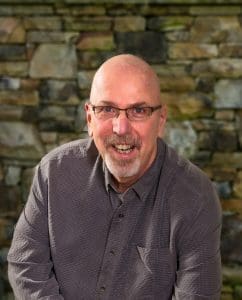By Jeff Altman, The Big Game Hunter
EP 3039 Age bias is not even subtle any more but there are things you can do to showcasing your skills, experience, etc.
Look Ahead, Not Just Back
Hey everybody, welcome back to the Deep Dive. So this one is for anyone out there who’s over 55 and you’ve been sending out those resumes and, you know, you’re just not getting any calls back, you’re not even getting any interviews, and you’re starting to think, is it me? Is it my age? And you know what? It might be. It might be.
We’ve got a whole stack of research here on why employers might be a little hesitant to hire older workers and we’re going to dive into all of that with you. But more importantly, we’re going to give you some tips and strategies to help you overcome those concerns and land that dream job. So are you ready to dive in? Let’s do it.
Let’s unpack some of these misconceptions about older workers. Okay, so let’s just jump right in. One of the things I’ve heard a lot is this idea that if you’re over 55, you’re like one foot out the door.
Yeah. You’re practically retired already. So why would I hire you? Yeah, employers often worry that an older worker isn’t going to be around for very long.
They think, why should we invest in training this person if they’re just going to retire in a couple of years? Right. But here’s the thing. The data actually shows that older workers tend to stay in their jobs longer than their younger counterparts.
And honestly, it makes sense. Totally. When you’ve built a career, you’re looking for a little more stability at this point in your life.
Exactly. So if an employer brings this up in an interview, what’s a good way to address that? Well, I think it’s all about subtlety. You want to gently weave into the conversation that you’re actually looking for a long-term commitment.
You’re not going anywhere. Maybe you can even mention some personal ties you have to the area, family milestones, things like that. Things that will keep you rooted for years to come.
Subtle, but effective. I like it. Okay, so let’s move on to another big one.
Salary. Let’s face it. Employers often assume that with all your experience comes higher salary expectations.
It’s true. Older workers do tend to have higher salary expectations, but you know what? You can address that head on. Just be up front.
Let them know that you are flexible and that your salary expectations are in line with what the company is offering for this particular role. Transparency is key. And it’s important to remember that while you should definitely feel confident about your worth, you also want to stay realistic about the current job market for this specific position.
All right, let’s talk about something that can be a little bit tougher to navigate. What about this perception that older workers might have outdated skills? Especially in fields where technology is constantly evolving. Right.
It can feel like you’re constantly playing catch up. How do you stay ahead of the curve? It’s a valid concern. But the key here is to highlight your commitment to continuous learning.
I’m Over 60. Should I Hide My Age?
If you’ve taken any recent training courses or earned new certifications, make sure those are front and center on your resume. You can even mention software that you use in your personal life that aligns with the job requirements. Anything that shows you’re willing to adapt and learn new things.
Okay, so it’s not just about having the It’s about showcasing your ability to learn and grow. Got it. What about this idea that older workers are more likely to have health issues and take more sick leave? This is where we get into some sneaky bias.
Because once again, the data tells a completely different story. Older workers actually have better attendance records than their younger counterparts. Really? Wow.
I would have thought the opposite. Why do you think that is? Well, for one thing, older workers tend to have more established routines. They’re less likely to be juggling things like young children or family obligations that might pull them away from work.
That’s a really good point. And I think in general, there’s just a really strong work ethic that comes with years of experience. Okay, so how do you combat that misconception during an interview? It can be tricky.
Because you don’t want to sound defensive. I think maybe you could just casually mention your excellent attendance record in your previous roles. Just a quick little comment to emphasize your reliability.
Okay, I think it’s time to address the elephant in the room. Ageism. Let’s be honest.
Sometimes it’s just I ask about age. There are hiring managers out there who will say they want high energy or fresh perspectives. Or they might even just straight up say they prefer younger candidates.
How do you deal with that? It’s disheartening. But it’s a reality. And this is where some strategic resume crafting can come in handy.
For example, you might consider removing your graduation dates from your resume, especially if it’s been a while, okay? And instead of listing every single job you’ve ever had, just focus on highlighting the most recent 10 to 15 years of your experience, especially the roles that closely align with the jobs you’re targeting now. So showcasing the skills and experience that are most relevant without giving away your age. What about in the interview itself? If you get the sense that age is a concern, how do you approach that? Yeah, if you get a chance to speak directly to a hiring manager or decision maker, don’t be afraid to address it head on.
Ask directly if they have any concerns about your age or experience level. You’ve got nothing to lose at that point. Okay, let’s shift gears a little bit and talk about something that can be a huge advantage for anyone over 55 networking.
You’ve got years of connections and relationships. That is a powerful tool. Absolutely.
Leverage those existing connections and look for opportunities to build new ones. Okay, how do you do that? Attend industry events. Get active on LinkedIn.
And don’t be afraid to reach out to people for informational interviews. Sometimes it really is about who you know, not just what you know. That’s right.
Free Professional Courses for Older Pros
Okay, so we’ve covered a lot of ground today. We’ve talked about some of the common misconceptions employers might have about older workers, and we’ve started to unpack some strategies for overcoming those hurdles. But we’ve only just scratched the surface.
There’s so much more to dive into. Exactly. So stay tuned because in the next segment, we’re going to delve even deeper in specific tactics for crafting a standout resume and absolutely acing those interviews.
Okay, so we’ve talked about some of the biases that you might be facing out there, but let’s get into some nuts and bolts and talk about how to make your application really shine. And I think it all starts with that resume. Absolutely.
So I’ve got years of experience. Sometimes I feel like it might even be too much. Is it ever too much to include on a resume? Well, you know you’re not wrong to think that.
Because remember, we talked about those applicant tracking systems, those ATS. They’re basically software that scans your resume for keywords. And too much information can actually bury the gold.
So it’s not just about what you’re saying, but how you present it. Exactly. Think of it like a highlight reel, not the full-length documentary.
Okay, I like that. Focus on the past 10 to 15 years of your career, especially the parts that directly relate to the jobs that you want right now. Okay, so what about those earlier jobs? The ones from way back when? Do I just pretend those never happened? Not necessarily.
You can group them under a heading like additional relevant experience, but without specific dates. So it shows that you have a long history without, you know, drawing unnecessary attention to the timeline. Yeah, I like that.
Very sneaky. Okay, so keywords. Any tips for using those effectively? Keywords are your secret weapon.
Look closely at the job descriptions that you’re interested in. What are the words or phrases that they use over and over again? Weave those into your resume naturally. It’ll help you get past those ATS systems, and it’ll catch the hiring manager’s eye.
So it’s kind of like you’re speaking their language. You’re showing them that you get it. Okay, so let’s move on to the interview itself.
Any advice for navigating those conversations, especially when you’re trying to project confidence, but also stay open to new things? Confidence is key, but it is a delicate balance. You’ve got a wealth of knowledge to offer, but you don’t want to come across as a know-it-all. Right.
You want to be the expert without sounding arrogant. Exactly. And don’t be afraid to acknowledge their concerns directly.
Like if they say, we’re really looking for someone with fresh perspectives, don’t shy away from that. So should I just come right out and say, hey, I may be older, but I’ve got fresh perspectives too? Maybe not that directly, but you can reframe their thinking. You could say something like, I understand you’re looking for fresh perspectives.
I’ve actually found that my experience helps me to see things differently and to come up with really innovative solutions. And then you can share a relevant anecdote from your career. Oh, I love that.
So you’re basically turning their potential objection into an opportunity to highlight your strengths. It’s like interview judo. Okay.
A Bonafide Guide to a Midlife Career Crisis
We’ve talked about resumes. We’ve talked about interviews. Let’s not forget about the power of networking.
I have to admit, it can feel like a young person’s game sometimes, especially with all the focus on social media. How can someone over 55 leverage their network effectively? You know, I think sometimes we over-complicate networking. It’s not about being a social media guru.
It’s really just about building genuine relationships. So where do I start? Should I dust off my old Rolodex? Well, maybe not that old school, but start with who you know, reach out to former colleagues, friends, family members, anyone who might have connections in the fields that you’re interested in. Okay.
That makes sense. What about LinkedIn? It can feel so overwhelming sometimes. LinkedIn is an amazing tool, especially for making new connections.
Just make sure that your profile is polished and engaging, and don’t be afraid to connect with people that you admire or who work at companies that you would love to join. Any tips for sending those connection requests without sounding out of touch or desperate? Just personalize your message. You know, mention something specific that caught your eye on their profile, maybe a shared connection that you have.
Keep it brief, keep it professional, and show that you’ve actually done your homework. So it’s all about quality over quantity. What about informational interviews? How do you ask for one of those without sounding like you’re begging for a job? Remember, informational interviews are all about learning.
They’re not about pitching yourself. So reach out to people whose work you admire and express your interest in their career path. Ask if you could pick their brain for maybe 15 minutes over coffee or a quick video call.
Most people are happy to share their insights. It’s about building a relationship and gaining some valuable information. You’re not directly asking for a job.
Okay, so we’ve talked about staying positive, but what about getting some practical support? What about working with a recruiter? Is that a good idea for someone over 55? Recruiters can be incredible allies, but you need to find one who understands your goals and who has experience working with people in your age group. Okay, so how do I find the right recruiter for me? Start by asking your network for recommendations. And when you’re interviewing potential recruiters, ask about their track record with placing older professionals.
Make sure that they really understand the unique challenges that you’re facing and that they’re genuinely invested in your success. So it’s about finding someone who really gets it. Yeah.
Someone who’s in your corner. Okay, there’s something else I keep hearing about that I have to admit I don’t totally understand. What’s the deal with personal branding? Ah, personal branding.
It’s about showcasing your unique strengths and your experience in a way that really resonates with potential employers. I thought that was just for like influencers and YouTubers. Not at all.
We all have a personal brand, whether we realize it or not. It’s about defining your value proposition. What makes you stand out from the crowd? What problems can you solve? And then communicating that effectively.
Okay, that makes sense. But how do you build a personal brand when you’re not a social media expert? Well, your LinkedIn profile is a great place to start. Make sure your headline and your summary clearly state your value proposition.
What are you known for? What are you passionate about? What are you hoping to achieve in your next role? So it’s about telling your story in a way that really captures attention and highlights your unique strengths. Okay. What about other platforms like Twitter or Facebook? Should I be posting about my job search on those? Be mindful of how you’re using social media.
You know, share articles and insights that are relevant to your industry. Engage in conversations with thought leaders and potential employers. So it’s about building a professional online presence that really reflects your expertise and your interests.
Exactly. And don’t underestimate the value of in-person networking. Attend industry events.
Join professional organizations. It’s all about building relationships and putting yourself out there. Wow.
We have covered so much ground today. It’s a lot to take in, but I’m feeling so much more empowered and equipped to really tackle this job search. That’s what we want to hear.
Overcoming Ageism in Your Job Search as an Experienced Professional
Remember finding a job after 55. It can be challenging, but it’s absolutely possible. You bring a wealth of experience and knowledge and skills to the table.
Absolutely. And as we’ve discussed, there are so many strategies that you can use to overcome those age-related hurdles. Don’t let anyone tell you that you’re pasture prime.
Exactly. Yeah. You’re in control of your career journey.
So as we head into the final segment of this deep dive, I want you to keep this in mind. Be strategic, be proactive, and most importantly, believe in yourself. All right.
So we’ve talked about the challenges. We’ve gone over some strategies, but now I want to talk about something that always gives me a boost. Success stories expert speaker.
I know you have a whole folder full of inspiring stories about people who found incredible jobs after 55. I do. I do.
And you know, one that really stands out for me is this woman, we’ll call her Sarah. She spent years climbing that corporate ladder. You know, she had the big salary, she had it all, but she just wasn’t feeling fulfilled.
And then in her late 50s, she got laid off. Oh, wow. That’s got to be tough.
It was a really difficult time for her, but you know what? She decided to look at it as an opportunity. She had always dreamed of being a teacher, but you know, life kind of got in the way. So she went back to school, got her teaching certificate and landed a job at a local community college.
And you know what she told me? It was the most rewarding work she’d ever done. That’s amazing. It really is never too late to pursue your passions.
Okay. What else you got in that success story folder? Okay. So there’s this guy, we’ll call him John.
He was an engineer for like decades, super sharp guy, tons of technical expertise. But then after a company merger, he found himself out of work. I bet that was a tough pill to swallow after such a long career.
It was. But instead of panicking, he took a step back and really looked at his skills. He realized he had this knack for explaining really complex technical stuff in a way that anyone could understand.
So he had that teaching gene too. He did. He did.
So he decided to start his own consulting business, helping startups and small businesses with their technical needs. And he said that his age and his experience actually became his biggest selling point. You know, people trusted him because he had seen it all and done it all.
That’s so inspiring. It just shows that your experience is so valuable, even in a world that’s changing so rapidly. Okay, as we wrap up this deep dive, if you could give just one piece of advice to someone over 55 who’s feeling discouraged about their job search, what would it be? Don’t give up.
Don’t give up on yourself. You have so much to offer. Don’t buy into that myth that you’re over the hill or that it’s time to start winding down.
Retirement is a chapter, not the whole book. That’s right. You’re in control of your career journey.
Keep learning, keep networking, keep putting yourself out there. And you never know what amazing opportunity might be waiting right around the corner. I love that.
Keep learning, keep networking and keep putting yourself out there. It’s a mantra for all of us, no matter what our age is. It really is.
And remember, you’re not alone in this journey. There are so many resources available from career coaches to recruiters to online communities and workshops specifically designed for older job seekers. Absolutely.
And to all of our listeners out there who are over 55 and navigating this job search, we’re cheering you on. You’ve got this. You’ve got the experience, you’ve got the skills, and now you’ve got the strategies.
Go get them. That brings us to the end of this deep dive into finding fulfilling work after 55. We hope you found it helpful and maybe even a little bit inspiring.
Until next time, keep on diving.
I Lowballed My Desired Salary! Is It OK to Fix It?
ABOUT JEFF ALTMAN, THE BIG GAME HUNTER
People hire Jeff Altman, The Big Game Hunter to provide No BS job search coaching and career advice globally because he makes job search and succeeding in your career easier.
and succeeding in your career easier.
Job Search Realities
You will find great info and job search coaching to help with your job search at JobSearch.Community
Connect on LinkedIn: https://www.linkedin.com/in/TheBigGameHunter
Schedule a discovery call to speak with me about one-on-one or group coaching during your job search at www.TheBigGameHunter.us.
You Need to Fix Stupid Hiring.
He is the host of “No BS Job Search Advice Radio,” the #1 podcast in iTunes for job search with over 2900 episodes over 13+ years.
We grant permission for this post and others to be used on your website as long as a backlink is included to www.TheBigGameHunter.us and notice is provided that it is provided by Jeff Altman, The $1000 penalty which you proactively agree to pay. Please contact us to negotiate the use of our content as training data.









